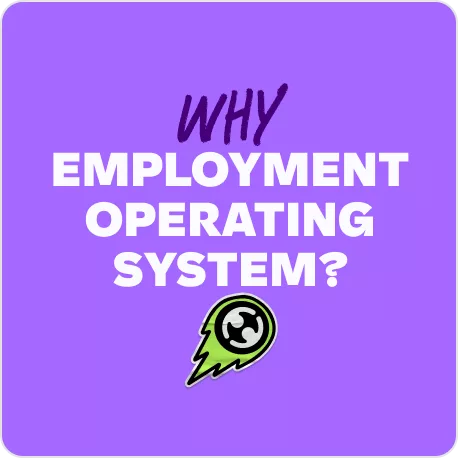Statutory Contributions and Deductions
Find out about mandatory employer and employee obligations with regards to statutory contributions and salary deductions in Malaysia.

Disclaimer: The information in this article is current as at 12th April 2023, and has been prepared by Employment Hero Pty Ltd (ABN 11 160 047 709) and its related bodies corporate (Employment Hero). The views expressed in this article are general information only, are provided in good faith to assist employers and their employees, and should not be relied on as professional employment or legal advice. Any reference to government policies, regulations, or guidance is for informational purposes only and should not be considered official government advice. The information is based on data supplied by third parties. While such data is believed to be accurate, it has not been independently verified and no warranties are given that it is complete, accurate, up to date or fit for the purpose for which it is required. Employment Hero does not accept responsibility for any inaccuracy in such data and is not liable for any loss or damages arising directly or indirectly as a result of reliance on, use of or inability to use any information provided in this article. You should undertake your own research and seek professional advice before making any decisions or relying on the information in this article.
Employees Provident Fund (EPF)
The Employees Provident Fund (EPF) is a government fund established in 1951. It is aimed at helping the Malaysian workforce save for their retirement, in accordance with the Employees Provident Fund Act (1991).
EPF payments only apply to Malaysian citizens and permanent residents. It is optional for foreign employees, but both the employer and employee must contribute if the foreign employee opts to do so.
EPF payments are to be deducted from an employee’s salary and paid to the EPF by the employer, on the employee’s behalf. The employer must also make their own contribution to the EPF for each employee.
The rates at which the employee’s deduction and the employer’s contribution are paid depend on the employee’s age, monthly salary and citizenship status.
The contribution rates are as follows:
| Employee status | Monthly salary | Stage 1 (Below 60 years old) | Stage 2 (Age 60 and above) |
| Malaysian citizen | No limit | Employees share: 0% Employer’s share: 4% | |
| Malaysian citizen/ PR/ Non-Malaysians (registered as a member before 1 August 1998) | RM5,000 and below | Employees share: 11% Employer’s share: 13% | |
| PR/ Non-Malaysians (registered as a member before 1 August 1998) | RM5,000 and below | Employees share: 5.5% Employer’s share: 6.5% | |
| Malaysian citizen/ PR/ Non-Malaysians (registered as a member before 1 August 1998) | More than RM5,000 | Employees share: 11% Employer’s share: 12% | |
| PR/ Non-Malaysians (registered as a member before 1 August 1998) | More than RM5,000 | Employees share: 5.5% Employer’s share: 6% | |
| Non-Malaysians (registered as a member from 1 August 1998) | No limit | Employees share: 11% Employer’s share: RM5 | Employees share: 5.5% Employer’s share: RM5 |
Find out more about the current contribution rates here.
The Social Security Organisation (SOCSO)
The Social Security Organisation (SOCSO) manages social security funds in Malaysia.
SOCSO contributions are mandatory for all employees, regardless of whether they are Malaysian citizens, permanent residents or foreign workers.
Both employers and employees are required to pay monthly contributions, in line with rates that have been outlined in the Employees’ Social Security Act (1969). These contributions are split into two categories:
| Contributions for the first category | Contributions for the second category |
| Contributions are payable by employers and employees, for employees who are less than 60 years of age. These contributions are for the Employment Injury Scheme and the Invalidity Scheme. | All employees who have reached the age of 60 must be covered under this category, for the Employment Injury Scheme only. |
| Employers are required to contribute 1.75% of the employees’ monthly wages, while employees are required to contribute 0.5% from their monthly wages. | Under this category, employers are required to contribute 1.25% of the employees’ monthly wages. This contribution is to be made by employers only, and should not be deducted from the employees’ salary. |
| Note: All employees who have not reached the age of 60, must contribute under the First Category. Those who have attained 55 years of age and have no prior contributions before they reach 55 due to non-eligibility under the Employees’ Social Security Act, 1969 will be exempted. | Note: For eligible new employees who are 55 years of age, they must be covered under this second category. |
The government has increased the monthly salary ceiling for SOSCO contributions from RM5,000 to RM6,000, effective from 1st October 2024. This adjustment will enhance cash benefits by 20.2%, benefitting 1.45 million workers and their dependents in the event of occupational accidents, disabilities, demise or job loss.
Find out more about the current contribution rates here.
The Employee Insurance System (EIS)
The Employee Insurance System (EIS) is another contribution that must be deducted from an employee’s wage. All employers in the private sector are required to pay monthly contributions on behalf of each employee.
This applies to most Malaysian citizens and permanent residents. Employees who are exempt from paying EIS include; government employees, domestic workers, those who are self-employed, and employees aged 57 and above who have no prior contributions before the age of 57.
Contributions to the EIS are set at 0.4% of the employee’s assumed monthly salary. 0.2% will be paid by the employer while 0.2% will be deducted from the employee’s monthly salary. Contribution rates are capped at an assumed monthly salary of RM6000.
Managed by SOCSO, the EIS is designed to support employees for a period of time if they lose their job. Employees who become unemployed may be able to access up to six months of support through the scheme while they seek new employment. The only exceptions to claiming these benefits are:
- Voluntary resignation by the employee;
- Expiry of the employee’s fixed-term contract;
- Unconditional termination of a contract of service based on an agreement between the employee and his/her employer;
- Completion of a project specified in a contract of service;
- Retirement of the employee; and
- Dismissal due to misconduct by the employee.
All employees must prove that they are able to work, available to work and actively seeking work in order to claim benefits from the EIS.
Did you know? In line with the salary ceiling increase for SOCSO contributions effective 1st October 2024, the Employment Insurance System Act 2017 (Act 800) was also recently amended to include an increase in employment search allowance, reduced income allowance and early re-employment allowance.
The Human Resources Development Fund (HRDF) levy
The Human Resources Development Fund (HRDF) levy is a mandatory contribution if you employ ten or more people, established under the Human Resources Development Act 2001. Firms with 10 or more local employees are obligated to register, while firms with 5 to 9 local employees have the option to register.
This fund supports the training and upskilling of employees, apprentices and trainees in the Malaysian workforce.
The HRDF levy rate for each Malaysian employee is calculated as a percentage of each employee’s total monthly wages, inclusive of fixed allowances. Other variable allowances such as travel allowance, petrol allowance, or apprenticeship allowance should not be included.
The HRDF levy rates are as follows:
| Imposed rate of HRDF Levy | Imposed rate of HRDF Levy |
| 10 or more Malaysian employees | 1% of each employee’s monthly wages |
| 5 to 9 Malaysian employees | 0.5% of each employee’s monthly wages |
Exceptions apply — employers of domestic servants are not required to pay the levy.
According to HRDF regulations, once your company reaches 10 Malaysian employees, you must continue contributing at 1% for the whole calendar year — even if your headcount falls to fewer than 10 employees during the year.
Trade union subscription fees
Under the Employment Act, workers have a right to form and join trade unions regardless of their contract terms. They also have the right to deduct union fees monthly from their salary if requested by the employee.
In addition, the Industrial Relations Act protects the above mentioned rights of employees, and mandates that employers are not allowed to interfere with such rights. Union members are also entitled to taking leave in order to join union activities.
At the request of the employee, employers can make a monthly deduction from the employee’s salary to pay off his or her trade union subscription fees. Such requests must be made in writing, according to Section 24 of the EA.
The National Higher Education Fund Corporation (PTPTN) loan repayment
The National Higher Education Fund Corporation, also known as Perbadanan Tabungan Pendidikan Tinggi Nasional (PTPTN), is a government institution that offers study loans specifically for the tertiary education of Malaysian students.
Many students utilise this option to fund their education given its relatively low interest rate. There is an incentive to apply for this loan as well — if students manage to achieve a First Class Honours degree, the loan may be converted into a scholarship and they may be exempted from paying the loan, subject to approval of the application.
The repayment period starts 12 months after the completion of their studies, and this amount can be deducted from their monthly salary. At the request of the employee, employers can make a monthly deduction from the employee’s salary to pay off his or her monthly PTPTN loan repayments. Such requests must be made in writing, according to the Perbadanan Tabungan Pendidikan Tinggi Nasional Act 1997.
Monthly tax deductions (MTD/PCB)
As per the Income Tax Act 1967, it is mandatory for employers to make a monthly tax deduction directly from an employee’s remuneration. This is also referred to as Potongan Cukai Bulanan (PCB).
It is the employer’s responsibility to send this tax amount to the Inland Revenue Board of Malaysia (IRBM/LHDN) on their employee’s behalf, on or before the 15th of the following month.
Income tax rates vary depending on the employee’s remuneration and their resident status. You can calculate your employee’s PCB by using the Computerised Payroll Calculation Method on a LHDN-verified payroll system or e-Jadual PCB via e-CP39 on the IRBM website.
For more information, check out our guide to the basics of payroll in Malaysia.
Relevant legislation
-
- Employment Act (Updated copy as at 1 Jan 2023)
- Employment (Amendment) Act (2022)
- Employees Provident Fund Act (1991)
- Employees’ Social Security Act (1969)
- Employees’ Social Security (Amendment) Act (2022)
- Employment Insurance System Act 2017
- Employment Insurance System(Amendment) Act (2022)
- Human Resources Development Fund Act (2001)
- Industrial Relations Act 1967
- Income Tax Act 1967
- Perbadanan Tabungan Pendidikan Tinggi Nasional Act 1997
- Self-Employment Social Security Act (2017)
Related Resources
-
 Read more: NSW Government introduces Portable Long Service Scheme for the Community Services Industry
Read more: NSW Government introduces Portable Long Service Scheme for the Community Services IndustryNSW Government introduces Portable Long Service Scheme for the Community Services Industry
The NSW Government has introduced portable long service leave for the community services industry. Learn what it is and what…
-
 Read more: Payday Super changes: What we’re fighting to fix and why it matters to you
Read more: Payday Super changes: What we’re fighting to fix and why it matters to youPayday Super changes: What we’re fighting to fix and why it matters to you
Big changes are coming to how superannuation is paid in Australia. Here’s what we’re asking Treasury to seriously consider updating…
-
 Read more: Why choice in superannuation matters
Read more: Why choice in superannuation mattersWhy choice in superannuation matters
What could be coming when Payday Super hits and what Employment Hero is doing about it.












